Scientists develop an autonomous orbital greenhouse
 Researchers have developed an orbital greenhouse, an autonomous module, which enables cultivating various plants in space.
Researchers have developed an orbital greenhouse, an autonomous module, which enables cultivating various plants in space.
Feb 20th, 2020
Read more
 Subscribe to our Space Exploration News feed
Subscribe to our Space Exploration News feed
 Researchers have developed an orbital greenhouse, an autonomous module, which enables cultivating various plants in space.
Researchers have developed an orbital greenhouse, an autonomous module, which enables cultivating various plants in space.
Feb 20th, 2020
Read more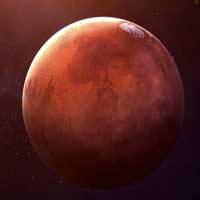 While NASA's InSight's seismometer has been patiently waiting for the next big marsquake to illuminate its interior and define its crust-mantle-core structure, two scientists have built a new compositional model for Mars.
While NASA's InSight's seismometer has been patiently waiting for the next big marsquake to illuminate its interior and define its crust-mantle-core structure, two scientists have built a new compositional model for Mars.
Feb 20th, 2020
Read more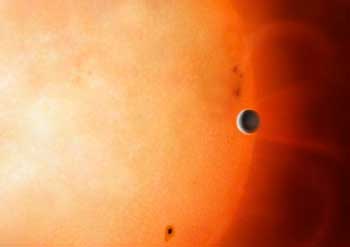 The 'hot Jupiter' orbits perilously close, to the point that it will be destroyed by the star. This research could shed light on how long a planet can orbit that close to a star before it spirals to its destruction.
The 'hot Jupiter' orbits perilously close, to the point that it will be destroyed by the star. This research could shed light on how long a planet can orbit that close to a star before it spirals to its destruction.
Feb 20th, 2020
Read more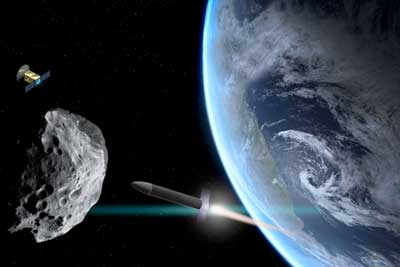 Engineers devise a decision map to identify the best mission type to deflect an incoming asteroid.
Engineers devise a decision map to identify the best mission type to deflect an incoming asteroid.
Feb 20th, 2020
Read more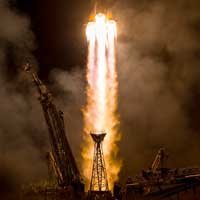 A new type of engine - called a rotating detonation engine - promises to make rockets not only more fuel-efficient but also more lightweight and less complicated to construct. There is just one problem: Right now this engine is too unpredictable to be used in an actual rocket.
A new type of engine - called a rotating detonation engine - promises to make rockets not only more fuel-efficient but also more lightweight and less complicated to construct. There is just one problem: Right now this engine is too unpredictable to be used in an actual rocket.
Feb 19th, 2020
Read more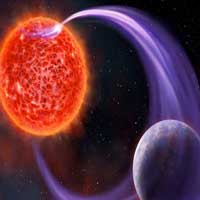 Astronomers observed radio waves that carry the distinct signatures of aurorae, caused by the interaction between a star's magnetic field and a planet in orbit around it.
Astronomers observed radio waves that carry the distinct signatures of aurorae, caused by the interaction between a star's magnetic field and a planet in orbit around it.
Feb 18th, 2020
Read more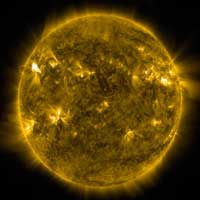 A new study has helped refine understanding of the amount of hydrogen, helium and other elements present in violent outbursts from the Sun, and other types of solar wind, a stream of ionized atoms ejected from the Sun.
A new study has helped refine understanding of the amount of hydrogen, helium and other elements present in violent outbursts from the Sun, and other types of solar wind, a stream of ionized atoms ejected from the Sun.
Feb 17th, 2020
Read more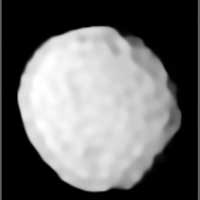 A tilted orbit may explain the asteroid Pallas' highly cratered surface.
A tilted orbit may explain the asteroid Pallas' highly cratered surface.
Feb 11th, 2020
Read more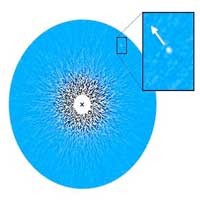 Astronomers have probed the formation process of giant exoplanets and brown dwarfs by using a combination of direct imaging of these objects and custom software to model their orbits.
Astronomers have probed the formation process of giant exoplanets and brown dwarfs by using a combination of direct imaging of these objects and custom software to model their orbits.
Feb 11th, 2020
Read more Radiation from dying stars is luminous enough to easily spin up orbiting asteroids to break-up speed.
Radiation from dying stars is luminous enough to easily spin up orbiting asteroids to break-up speed.
Feb 10th, 2020
Read more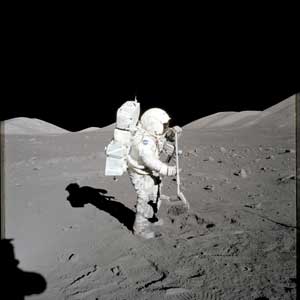 Scientists found a new way to analyze the chemistry of the Moon's soil using a single grain of dust. Their technique can help us learn more about conditions on the surface of the Moon and formation of precious resources like water and helium there.
Scientists found a new way to analyze the chemistry of the Moon's soil using a single grain of dust. Their technique can help us learn more about conditions on the surface of the Moon and formation of precious resources like water and helium there.
Feb 8th, 2020
Read more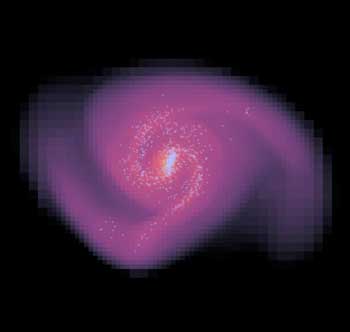 For the first time, researchers have simulated the formation of galaxies in a universe without dark matter. According to the scientists, their assumptions could solve many mysteries of modern cosmology.
For the first time, researchers have simulated the formation of galaxies in a universe without dark matter. According to the scientists, their assumptions could solve many mysteries of modern cosmology.
Feb 7th, 2020
Read more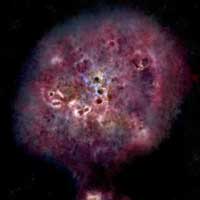 An international team of astronomers has found an unusual monster galaxy that existed about 12 billion years ago, when the universe was only 1.8 billion years old. Dubbed XMM-2599, the galaxy formed stars at a high rate and then died. Why it suddenly stopped forming stars is unclear.
An international team of astronomers has found an unusual monster galaxy that existed about 12 billion years ago, when the universe was only 1.8 billion years old. Dubbed XMM-2599, the galaxy formed stars at a high rate and then died. Why it suddenly stopped forming stars is unclear.
Feb 6th, 2020
Read more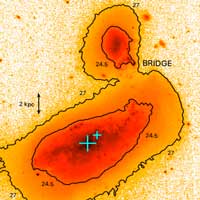 The so-called 'Cocoon Galaxy' not only has a unique shape, it has a rare double-nucleus structure, astronomers report in a new paper.
The so-called 'Cocoon Galaxy' not only has a unique shape, it has a rare double-nucleus structure, astronomers report in a new paper.
Feb 6th, 2020
Read more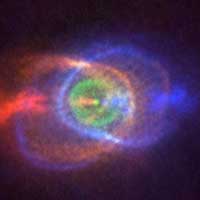 Astronomers have spotted a peculiar gas cloud that resulted from a confrontation between two stars. One star grew so large it engulfed the other which, in turn, spiraled towards its partner provoking it into shedding its outer layers.
Astronomers have spotted a peculiar gas cloud that resulted from a confrontation between two stars. One star grew so large it engulfed the other which, in turn, spiraled towards its partner provoking it into shedding its outer layers.
Feb 5th, 2020
Read more The origin of how the Universe created its voids and filaments can now be studied within seconds after researchers developed an artificial intelligence tool called Dark Emulator.
The origin of how the Universe created its voids and filaments can now be studied within seconds after researchers developed an artificial intelligence tool called Dark Emulator.
Feb 5th, 2020
Read more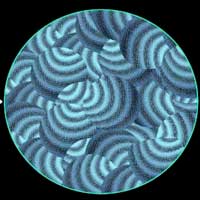 Gravitational waves could contain evidence to prove that neutrino particles reshuffled matter and anti-matter, explains a new study.
Gravitational waves could contain evidence to prove that neutrino particles reshuffled matter and anti-matter, explains a new study.
Feb 3rd, 2020
Read more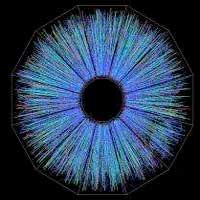 A new paper summarizes the evolution in our understanding of the exotic quark signature of this primordial material which once filled the whole Universe.
A new paper summarizes the evolution in our understanding of the exotic quark signature of this primordial material which once filled the whole Universe.
Jan 31st, 2020
Read more